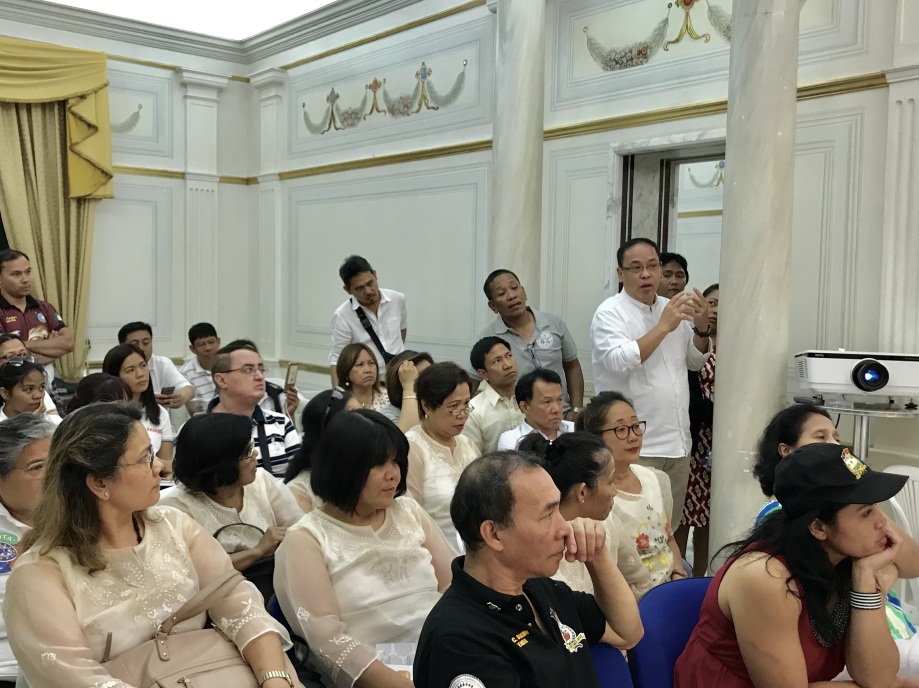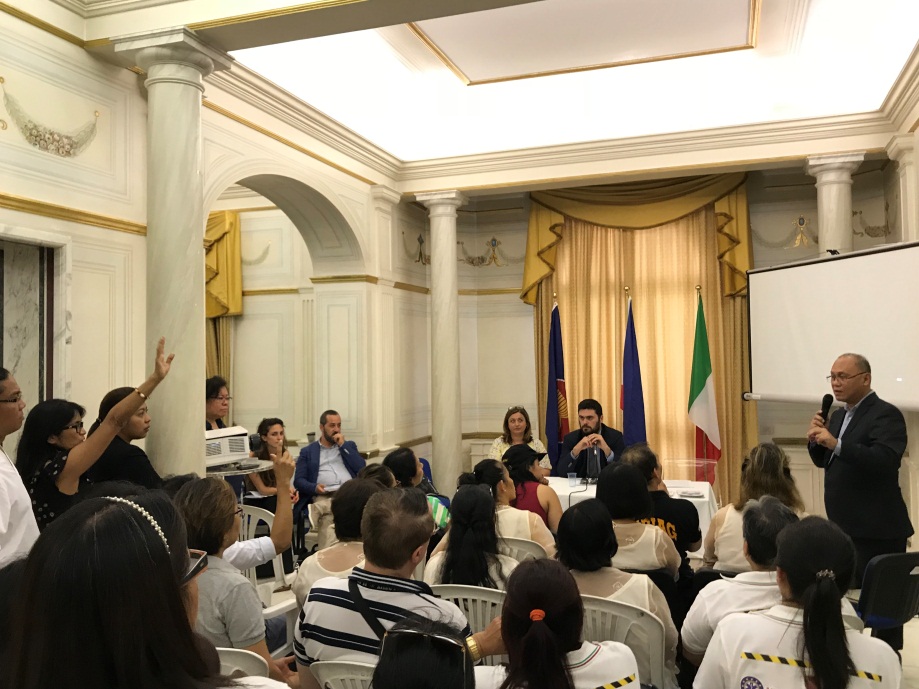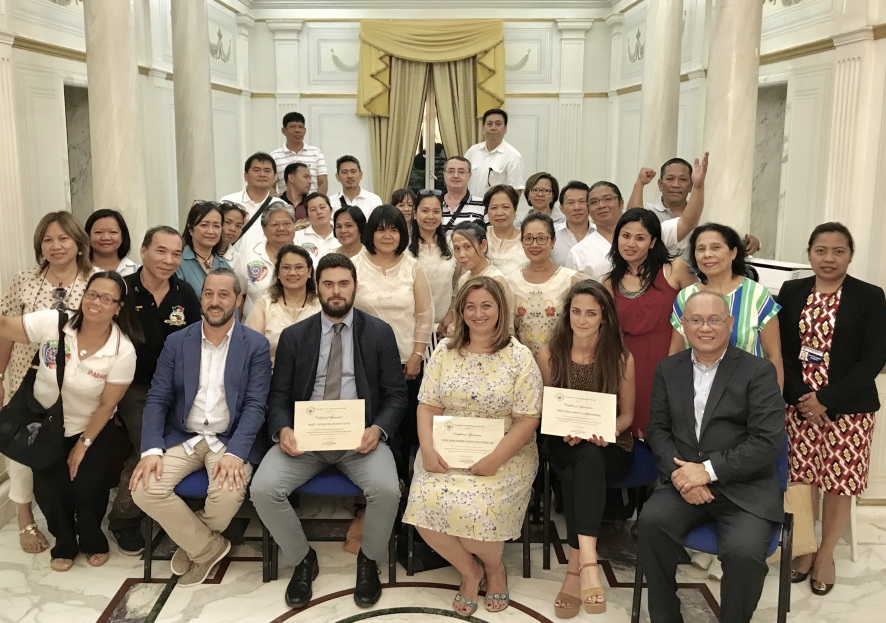
Dott. Giuseppe Di Giovanni (with microphone) from the Ministry of the Interior of Italy explains that the immigration policy of Italy remains the same. To his right is Deputy Inspector Anna Lisa Desiati, also from the Ministry of the Interior. Both immigration officials were the resource persons at a forum organized by the Philippine Embassy in Rome on 19 July 2018.
Italy’s Immigration Policy Remains Unchanged
Rome, 24 July 2018-- Representatives of the Italian immigration office have assured the Filipino community in Rome that there is nothing new to the immigration policy of Italy.
“The principle behind Italy’s policy for foreign nationals residing in Italy is still the same,” explained Mr. Giuseppe Di Giovanni who represented the Department for Civil Liberties and Immigration of the Ministry of the Interior of Italy at a forum organized by the Philippine Embassy in Rome at its chancery on 19 July 2018.
“If you have a valid permit to stay, then your stay in the Italian territory is legal. If you don’t have any, then you are subject to expulsion,” he explained.
During the question and answer portion of the forum, Mr. Di Giovanni highlighted the following points:
1. Random inspection of foreign nationals is a regular function of local authorities. A foreign national has to show proof of his legal stay in Italy.
2. A foreigner who has no valid permit to stay in Italy is subject to expulsion. The process of expulsion commences when local authorities have confirmed that there is no legal basis for the foreigner to stay in Italy.
3. One’s Permit to Stay should be consistent with one’s entry visa. This means that a tourist visa does not entitle one to work in Italy.
4. The EU Long-Term Residence Permit, formerly known as Carta di Soggiorno, may be revoked under the following conditions:
• absence of the foreign national in the European Union for a period of 12 consecutive months;
• absence of the foreign national from Italy for six months;
• acquisition of the EU Long Term Residence Permit in another European Member State;
• when the foreign national is deemed to be a danger to public order or national security.
5. A tagliando is a document to show that one has a pending application for renewal of one’s permit to stay. It is incorrect to assume that it can be used as a re-entry permit or as a replacement of a valid visa or permit to stay.
6. The Attesa Occupazione status is valid for 1-2 years and its renewal is entirely the discretion of the immigration office.

Participants to a forum on Italy’s Immigration policy listen carefully to every reply given by immigration officials to questions raised by the members of the Filipino community in Rome at a forum held at the Philippine Embassy on 19 July 2018. Welfare Officer Hector Cruz (standing in white shirt) joins the question and answer portion of the forum.

The photo above shows the interest of forum participants to know more about the latest immigration policy of Italy. More than 30 representatives of the Filipino community organizations in Rome attended the forum on immigration policy organized by the Philippine Embassy on 19 July 2018.

The photo above shows the resource persons and participants to the Forum on Immigration Policies and Programs for Returning Migrants held at the Philippine Embassy premises on 19 July 2018. Seated front row, from left to right: IOM Regional Counselor for Lazio Dott. Claudio Di Lorenzo, Immigration Officer Dott. Giuseppe Di Giovanni and his assistant, Deputy Inspector Anna Lisa Desiati, IOM Project Assistant Dott.ssa Greta Alessandri, and Consul General Adrian Bernie Candolada.


